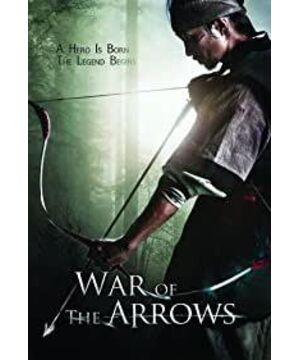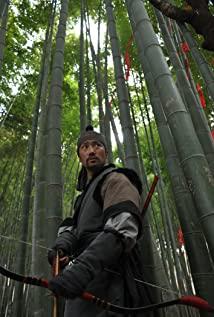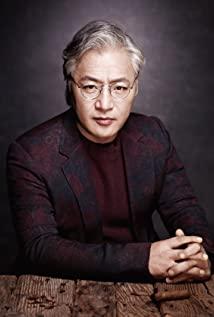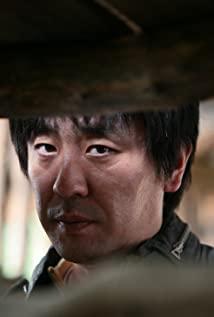First, this movie is quite commendable in restoring the original appearance of history. The incident is real, Bingzi's chaos occurred in 1636-1637, probably after the Manchus began to invade Liaodong, but before entering the customs. The historical fact is that Huang Taiji personally led his troops to Seoul. After besieging the city for a long time, and taking away dozens of people from the Joseon royal family, princes, and clan who had escaped the chaos of Ganghwa Island, the helpless King Injo took off his royal robe, put on his qingyi, and went out of the city. He walked to the military tent of Dolgun, bowed his head, and reached a series of agreements with the Manchus to leave the Ming dynasty and switch to the Qing dynasty, and handed over the three officials of Hongwenguan who resolutely resisted Qing Zhongming to the Manchus. The three of them went to Shenyang. Since then, although the Qing Dynasty was full of contempt for the Manchus in the Qing Dynasty-from the record of the messengers paid by North Korea to the Qing Dynasty and Bibi can be seen in the "Records of the Joseon Dynasty"-but it has become the fact that the Manchus attacked the Ming Dynasty. The cooperative support party provided logistical support for the Manchu and Qing army and provided soldiers in some water battles in the Manchu and Qing dynasties.
In this film, although a fictitious prince participates in the battle, the general inside is also suspicious, and it is even more impossible for the heroic protagonist to kill the prince of Manchu, but the big historical situation is correct and it has been successfully shaped. The scenes of the Koreans at that time, such as fighting weapons, banquets, and weddings, were very realistic. Of course, this is the specialty of Korean movies. The Manchu army also performed quite authentically. The actors actually spoke fluent Manchu. It is really amazing to be able to do this. . I personally feel that the most historically substantiated scene is the scene of plundering Koreans and taking them to military camps for enslavement. Although it may not be historical facts, the Qing army probably did not directly invade Hanyang, and the Manchu army during the Huangtaiji period actually had strict military discipline, except for revenge. Sometimes when attacking the city, they pay more attention to maintaining order, so as to leave a good reputation and prompt other places to give up resisting and surrendering. However, the plundering of the enemy’s population during the war occurred many times in ancient times. For example, the Jin defeated the Northern Song Dynasty and the Yuan defeated the Jin. The ending was the imprisonment of the royal masters in the north. Such scenes seem to be rarely shown in Chinese movies. In this film, the arrest of civilians, the long journey away from their homeland in fright and humiliation, the tears of tears when looking back at the border, and the trembling treatment in the enemy camp are all quite realistic. ,great.
Second, although the storyline of this movie has the heroism theme supported by a slightly bizarre process that is common in some commercial films, on the one hand, the characters’ emotional changes are rich and reasonable, such as the actor and the sister in love, the prospective brother-in-law, and the family member. The servants were actually separated from each other before the enemy invaded, but after the enemy appeared, they showed solidarity, mutual protection and even self-sacrifice regardless of their own safety; and the ending of the film was neither a total tragedy nor a great victory for good people over demons. Reunion ended, but the good and the bad will die together, and a sense of tragic and majestic lofty spontaneously arises.
Interestingly, the "Gladiator" filmed in the United States in 2000 is similar to this film. In the last scene, Maximus, a general who suffered bad luck and became a slave gladiator (also because loyalty to the country became a rebellion recognized by the regime) In the arena, he confronted the enraged emperor Commodus. The insidious emperor stabbed Maximus in the chest with a dagger and covered his wound with armor. The two went up to the ground to fight. Maximus killed the emperor with serious injuries. He fell to rest at the moment of victory. At this time, the emperor’s sister Lucilla, a conviction woman who persistently hopes to restore the rule of the people’s Senate, gave a short but powerful speech expressing her affirmation of the gladiator (the play has altered a lot of history, and Lucilla was a rebellion in history. My brother was put to death by suppression, which is the opposite of the ending in the play). The endings of these two movies-both men who are mortal enemies to each other fight in force in front of a woman-a woman who loves one of them and hates the other-and they all end up together. The difference is that the evil side seems to win. In the grip, he was killed instantly because of a precise key blow, and the righteous side was dying to express some of his own feelings after being severely wounded and struggling to kill the enemy, before closing his eyes. The similarity between this film and "Gladiator" makes me wonder whether the screenwriter has referenced Gladiator, or they have a common reference object?
Third, this play is a rare martial arts play with bow and arrow themes. The plot of the martial arts is very exciting, and it integrates well with the scenery, so I won’t say more about it, just watch it if you are interested.
View more about War of the Arrows reviews










